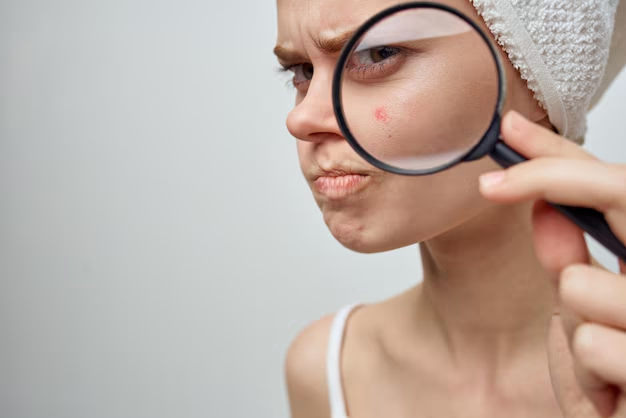Say Goodbye to Acne-Related Dark Spots: Your Comprehensive Guide
Waking up to find a fresh crop of acne is frustrating enough, but dealing with stubborn dark spots left behind long after the blemishes have healed can test anyone's patience. Understanding how to effectively fade these pesky spots and prevent future ones is crucial to restoring confidence and achieving glowing, clear skin. In this guide, we will dive into proven strategies to tackle dark spots caused by acne.
Understanding Dark Spots From Acne
Before jumping into solutions, it's essential to know what these dark spots are and why they occur. Dark spots, also known as post-inflammatory hyperpigmentation (PIH), result when the skin produces excess melanin in response to inflammation. Melanin is what gives your skin its color, and when produced in higher quantities, it can lead to areas of darkened skin following an acne breakout.
Factors Contributing to Post-Inflammatory Hyperpigmentation
Several factors contribute to the development of dark spots from acne:
Severity and Type of Acne: More severe acne, such as nodules or cysts, is more likely to leave behind dark spots.
Skin Type: People with darker skin tones are more prone to PIH due to more active melanocytes, the cells producing melanin.
Sun Exposure: Sun exposure can darken PIH spots by stimulating further melanin production.
Strategies to Fade Acne-Related Dark Spots
Effectively diminishing dark spots requires a blend of topical treatments, lifestyle changes, and preventive measures. Let's explore different approaches:
Topical Treatments to Lighten Dark Spots
Vitamin C Serums
Vitamin C is known for its ability to brighten the skin by inhibiting melanin production. Applying a vitamin C serum regularly can help fade dark spots over time.
Retinoids
Retinoids accelerate cell turnover and exfoliate the skin, helping to reduce the visibility of dark spots. Start with lower concentrations to prevent irritation.
Hydroquinone
Hydroquinone is a potent skin-lightening agent that reduces melanin synthesis. Use this treatment under guidance due to potential side effects from long-term use.
Niacinamide (Vitamin B3)
Niacinamide acts as an anti-inflammatory agent and reduces the transfer of melanin to skin cells, helping to even out skin tone.
Alpha Hydroxy Acids (AHAs) and Beta Hydroxy Acids (BHAs)
These chemical exfoliants remove dead skin cells, promoting new cell growth, which can improve skin texture and reduce dark spots.
Lifestyle Changes and Preventive Measures
Sun Protection
Consistent use of broad-spectrum sunscreen is crucial. Sun exposure can worsen dark spots, making sunscreen an essential part of any skincare routine.
Hydration
Keep your skin hydrated to support skin repair and regeneration. Opt for a moisturizer that suits your skin type.
Healthy Diet
Eating a balanced diet rich in antioxidants, vitamins, and minerals supports skin health. Consider foods high in omega-3 fatty acids and vitamins C and E.
Avoid Picking
It can be tempting to pick at acne, but this can lead to more inflammation and darker hyperpigmentation spots.
Natural Remedies That May Aid in Fading Dark Spots
While over-the-counter and prescription products are effective, natural remedies can also help in fading dark spots. Always perform a patch test when trying natural remedies to ensure no allergies occur.
Aloe Vera
Aloe vera has soothing properties and contains aloesin, which can inhibit melanin production, aiding in lightening dark spots.
Green Tea Extract
Rich in antioxidants, green tea extract can reduce inflammation and melanin production.
Turmeric
Curcumin, the active compound in turmeric, has anti-inflammatory and lightening properties when applied to the skin.
Licorice Extract
Licorice root extract can help lighten hyperpigmentation by inhibiting the enzyme responsible for melanin production.
Knowing When to Seek Professional Help
Sometimes, over-the-counter products and home remedies aren't enough. If dark spots persist or worsen, consulting a dermatologist might be necessary. Professional treatments can include:
Chemical Peels
Chemical peels remove the top layer of skin, promoting cell regeneration and revealing clearer skin underneath.
Laser Treatments
Laser therapy targets melanin and breaks down the pigment in dark spots, effectively lightening them over time.
Microdermabrasion
This procedure exfoliates and removes dead skin cells, which can reduce the appearance of dark spots.
Holistic Approach to Healthier Skin
Develop a Consistent Skincare Routine
Consistency is key in any skincare regimen. A simple routine includes cleansing, treating specific concerns like hyperpigmentation, moisturizing, and applying sunscreen.
Manage Stress Levels
Stress can exacerbate acne and other skin conditions, making it crucial to find relaxation techniques that work for you, such as yoga or meditation.
Get Quality Sleep
Your body repairs itself during sleep, making adequate rest essential for skin health.
Key Takeaways for Blemish-Free Skin
Achieving clearer, spot-free skin is a journey that requires time, consistency, and patience. Here are some practical takeaways to keep in mind:
- 🌞 Always protect your skin from the sun with broad-spectrum sunscreen.
- 💧 Stay hydrated internally and externally for optimum skin health.
- 🔬 Consider professional treatments like chemical peels for stubborn dark spots.
- 🍽️ Maintain a balanced diet for better overall skin condition.
- 🙅♂️ Resist the urge to pick at acne to prevent additional hyperpigmentation.
Summary Table: Key Steps to Fade Acne-Related Dark Spots
| Action | Benefit | Emoji |
|---|---|---|
| Apply Vitamin C | Brightens skin, fades spots | 🍊 |
| Use Sunscreen Daily | Prevents darkening of spots | 🧴 |
| Consider Retinoids | Speeds up cell turnover | 🔄 |
| Try Natural Remedies | Gentle approach to spot fading | 🍃 |
| Seek Professional Help | For persistent or severe cases | 💼 |
Taking multiple angles and approaches to understanding and addressing dark spots caused by acne can empower you to achieve healthier, more radiant skin. Keep in mind that progress takes time, and the best results often come from a personalized combination of treatments and preventive measures tailored to your skin's unique needs.

